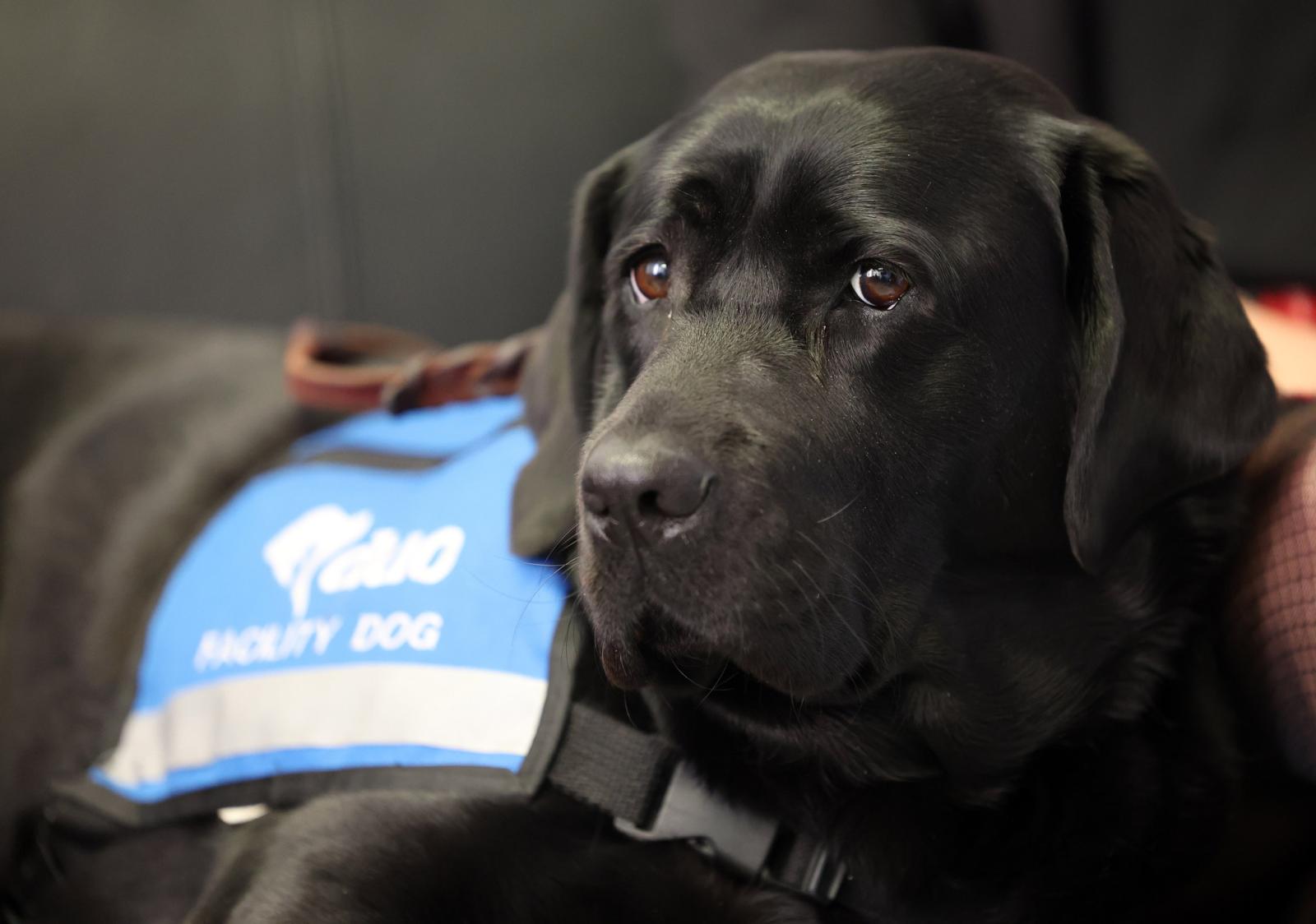In 2019, the Cook County State’s Attorney’s Office welcomed to the team Hatty, a two-year-old Labrador Retriever facility doge. Hatty is a specially trained support dog serving as a therapeutic resource to specifically assist young children or mentally disabled victims of sexual trauma. Hatty’s primary role is to provide direct support to these individuals when testifying in court or during interviews with prosecutors and other officials.

A facility dog, also known as a courthouse dog or courtroom dog, is a specially trained and certified assistance dog that provides support and comfort to individuals within the court system. These dogs are typically employed in legal settings such as courthouses, law enforcement agencies, and victim advocacy centers.
Facility dogs are carefully selected and trained to work in high-stress environments, interacting with individuals who may be experiencing trauma, anxiety, or emotional distress. They are typically partnered with professionals such as prosecutors, victim advocates, or therapists who handle cases involving vulnerable populations, such as children, victims of abuse, or individuals with disabilities.
The presence of a facility dog can have a positive impact on the well-being of individuals involved in the legal process. These dogs offer a calming and non-judgmental presence, providing emotional support and reducing anxiety for those navigating the complexities of the court system. Facility dogs may accompany victims or witnesses during interviews, courtroom proceedings, or therapy sessions, providing comfort and helping to create a more supportive environment.
It's important to note that facility dogs are distinct from emotional support animals or therapy dogs. They undergo extensive training to meet specific requirements and are often accredited through recognized assistance dog organizations. Their training focuses on maintaining proper behavior, obedience, and appropriate interactions within the legal context.
The use of facility dogs in the court system is a growing practice that aims to improve the overall experience for individuals involved in legal proceedings. These dogs contribute to creating a more compassionate and accessible justice system, ensuring that everyone has the necessary support and resources to navigate through the legal process.
